Reading books
 10 Benefits of Reading: Why You Should Read Every Day
10 Benefits of Reading: Why You Should Read Every Day
1. Mental Stimulation
Studies have shown that staying mentally stimulated can slow the progressof (or possibly even prevent) Alzheimer’s and Dementia, since keeping your brain active and engaged prevents it from losing power. Just like any other muscle in the body, the brain requires exercise to keep it strong and healthy, so the phrase “use it or lose it” is particularly apt when it comes to your mind. Doing puzzles and playing games such as chess have also been found to be helpful with cognitive stimulation.
2. Stress Reduction
No matter how much stress you have at work, in your personal relationships, or countless other issues faced in daily life, it all just slips away when you lose yourself in a great story. A well-written novel can transport you to other realms, while an engaging article will distract you and keep you in the present moment, letting tensions drain away and allowing you to relax.
3. Knowledge
Everything you read fills your head with new bits of information, and you never know when it might come in handy. The more knowledge you have, the better-equipped you are to tackle any challenge you’ll ever face.
Additionally, here’s a bit of food for thought: should you ever find yourself in dire circumstances, remember that although you might lose everything else—your job, your possessions, your money, even your health—knowledge can never be taken from you.
4. Vocabulary Expansion
This goes with the above topic: the more you read, the more words you gain exposure to, and they’ll inevitably make their way into your everyday vocabulary. Being articulate and well-spoken is of great help in any profession, and knowing that you can speak to higher-ups with self-confidence can be an enormous boost to your self-esteem. It could even aid in your career, as those who are well-read, well-spoken, and knowledgeable on a variety of topics tend to get promotions more quickly (and more often) than those with smaller vocabularies and lack of awareness of literature, scientific breakthroughs, and global events.
Reading books is also vital for learning new languages, as non-native speakers gain exposure to words used in context, which will ameliorate their own speaking and writing fluency.
5. Memory Improvement
When you read a book, you have to remember an assortment of characters, their backgrounds, ambitions, history, and nuances, as well as the various arcs and sub-plots that weave their way through every story. That’s a fair bit to remember, but brains are marvellous things and can remember these things with relative ease. Amazingly enough, every new memory you create forges new synapses (brain pathways)and strengthens existing ones, which assists in short-term memory recall as well as stabilizing moods. How cool is that?
6. Stronger Analytical Thinking Skills
Have you ever read an amazing mystery novel, and solved the mystery yourself before finishing the book? If so, you were able to put critical and analytical thinking to work by taking note of all the details provided and sorting them out to determine “whodunnit”.
That same ability to analyze details also comes in handy when it comes to critiquing the plot; determining whether it was a well-written piece, if the characters were properly developed, if the storyline ran smoothly, etc. Should you ever have an opportunity to discuss the book with others, you’ll be able to state your opinions clearly, as you’ve taken the time to really consider all the aspects involved.
7. Improved Focus and Concentration
In our internet-crazed world, attention is drawn in a million different directions at once as we multi-task through every day. In a single 5-minute span, the average person will divide their time between working on a task, checking email, chatting with a couple of people (via gchat, skype, etc.), keeping an eye on twitter, monitoring their smartphone, and interacting with co-workers. This type of ADD-like behaviour causes stress levels to rise, and lowers our productivity.
When you read a book, all of your attention is focused on the story—the rest of the world just falls away, and you can immerse yourself in every fine detail you’re absorbing. Try reading for 15-20 minutes before work (i.e. on your morning commute, if you take public transit), and you’ll be surprised at how much more focused you are once you get to the office.
8. Better Writing Skills
This goes hand-in-hand with the expansion of your vocabulary: exposure to published, well-written work has a noted effect on one’s own writing, as observing the cadence, fluidity, and writing styles of other authors will invariably influence your own work. In the same way that musicians influence one another, and painters use techniques established by previous masters, so do writers learn how to craft prose by reading the works of others.
9. Tranquility
In addition to the relaxation that accompanies reading a good book, it’s possible that the subject you read about can bring about immense inner peace and tranquility. Reading spiritual texts can lower blood pressure and bring about an immense sense of calm, while reading self-help books has been shown to help people suffering from certain mood disorders and mild mental illnesses.
10. Free Entertainment
Though many of us like to buy books so we can annotate them and dog-ear pages for future reference, they can be quite pricey. For low-budget entertainment, you can visit your local library and bask in the glory of the countless tomes available there for free. Libraries have books on every subject imaginable, and since they rotate their stock and constantly get new books, you’ll never run out of reading materials.
If you happen to live in an area that doesn’t have a local library, or if you’re mobility-impaired and can’t get to one easily, most libraries have their books available in PDF or ePub format so you can read them on your e-reader, iPad, or your computer screen. There are also many sources online where you can download free e-books, so go hunting for something new to read!
There’s a reading genre for every literate person on the planet, and whether your tastes lie in classical literature, poetry, fashion magazines, biographies, religious texts, young adult books, self-help guides, street lit, or romance novels, there’s something out there to capture your curiosity and imagination. Step away from your computer for a little while, crack open a book, and replenish your soul for a little while.
When You Start To Read More, These 10 Things Will Happen:
1. You will find a safe way to escape when your own life is depressing, overwhelming, or just boring.
No need to turn to drugs or alcohol. Save your money. Get a library card, or start downloading some of those thousands of ebooks in the public domain. Get wrapped up in a story. Get lost in another world. Get into a character’s head and out of your own.
It’s instant. It’s economical. It’s portable: your own personal escape route when things get to be too much.
And who’s going to look down on you for reading a book? You smart thing, you. I won’t tell them what’s really going on. Promise.
2. You find out that you have a family.
Okay, I know. You have parents and maybe siblings, and maybe a whole slew of aunts and uncles and cousins and grandparents and whatnot.
Or maybe not.
Maybe you do feel alone in the world, bereft.
Whether you’re a literal orphan or you simply feel like you totally don’t fit into the family you’ve got, becoming an avid reader is a way to find the family you can fit into.
It’s a worldwide, totally open, and really awesome family.
It’s the family of readers. Book lovers. Literary addicts. Bibliophiles. Become one of us, and you have an extended family that you can find anywhere. There’s a signal, of course, like a secret family handshake. Just pull out that latest book and read it. That’s all it takes.
We’ll see you.
We’ll know.
We’re always nearby, whenever you need us.
3. You will become part of a timeless, global conversation.
Books are the way that the past communicates with us. And books are the way that we communicate across cultures and national boundaries, across social lines and class divisions.
Books let us enter into each other’s lives and worlds in a completely unobtrusive but immersive way.
Yeah, it’s pretty awesome.
Have you ever wanted to be someone else, to go somewhere else, to experience some other life than the one you got?
Books, baby. What are you waiting for?
4. You will learn to talk pretty.
Reading is the most painless way to improve your vocabulary, spelling, and grammatical proficiency.
Did you catch how I just spelled “proficiency” without even looking it up?
Yeah. That comes from reading.
Read more, and you’ll be able to snicker smugly when your friends post status updates with egregious spelling errors. You can correct their misuse of common words. You can be the Grammatical Tyrant you’ve always dreamed of being.
5. You will look forward to lines, layovers, and waiting rooms.
This could be the biggest turning point of your life, actually. Instead of tapping your foot impatiently, huffing and sighing like dyspeptic cow, or otherwise displaying your wrath and frustration in a socially acceptable way, you can simply… read.
Whatever book you’re currently lost in should be with you, in your pocket or purse. Pull it out and you’ve got entertainment, companionship, and intellectual stimulation. All in one handy portable package.
My friend Leigh says that reading gives her “the ability to be happy anytime, anywhere, even when waiting ridiculously long amounts of time.”
That’s a superpower everybody needs.
6. You will be a nicer person.
You might not care about being a nicer person, but the other people in your life probably do care.
Reading, as my friend Christine put it, “allows me to experience another’s emotions, which in turn makes me more sensitive to those around me.”
And she’s right.
Maybe you’ve never been a victim of racism, abuse, or poverty. Maybe you don’t know what unrequited love feels like. Maybe you find it easier to criticize than to sympathize.
Reading won’t take that away entirely (my Criticize-O-Meter is still in good working order, even after decades as an avid reader) but it will help you to slow down a little bit on the judging.
And speed up a lot on the empathizing.
Because when you live other lives through books, you begin to see the other lives happening in the world around you. The lives you know nothing about.
And you begin to have a little more understanding. A little more interest. A little less “us versus them” and a lot more “we’re all in this together.”
7. You will learn stuff.
Even if all you read is fiction, you can learn quite a lot about cultural influence, relationships, history, fear, human psychology, the various expressions of spirituality, the effects of war, the way robots will definitely take over the world, and how superheroes manage to keep their capes clean.
All very useful information.
Want more? Branch out into non-fiction. Biographies, history, current events. No, just kidding; skip the books on current events. Read history instead; you’ll learn more about current events that way.
Philosophy. Psychology. How-to books. Memoirs. Science. Exploration. If you’re interested in it, you can find a book about it. Probably you can find an entire section of books about it.
And hey, if you can’t find a book about it, maybe you should write one.
8. You will discover that you were dumber than you knew.
In the time prior to your avid reading addiction (also known as “The Years Which Must Not Be Named”), you thought you had a pretty open mind, didn’t you?
Go ahead, you can admit it. I won’t laugh.
You thought that you knew kind of a lot, and that you had a broad perspective on life, and a pretty accurate view on the world and how things worked.
And then you started reading.
Maybe the first few books weren’t such a big deal. They probably kept you safely in your comfort zone. But then one of the members of your new reading family gave you a recommendation.
“You’ve got to read this,” she said. “It’s so great. Really.”
So you did.
And you realized that something you thought you knew—really knew, truly and certainly—was not right at all. You felt the edges along your mind begin to crack open a little bit.
You felt a little light seeping in and you started seeing the interior of your mind the way it really was: dim, dusty, and crowded with a lot of assumptions.
You kept reading, and the more you read, the more those cracks opened up. One by one, those assumptions slipped and slid out of the cracks. The light grew. The air cleared.
You started populating your mind with different things: images, conversations, perceptions, insights, data. Poetry. Fragments of lives you didn’t live, but somehow experienced through a book. Emotions that didn’t belong to you, but that you felt just as strongly.
Real things, from the real world, instead of that crumbly old stack of assumptions and expectations.
9. You will be more creative.
As you fill your mind with fresh material from all these books, something wonderful starts happening.
Your mind wakes up.
Creativity is really all about making connections. The creative people in life, the ones we admire for their ingenuity, are the ones who can make those connections really well. They have a broad database of knowledge, and they don’t bother keeping the categories separate. They let poetry seep into science. They let faith and history hang out together.
They understand, in fact, that all those categorizations are imposed. We put labels on things so that we can feel like we understand them, but sometimes the labels are counterproductive.
Reading helps you tear the labels off.
Reading helps you tear the labels off.
Reading helps you to fill your mind from as many sources as you want, and then let all of that beautiful stuff mingle and mix in anyway it wants.
10. You will become more imaginative and less afraid of being weird.
When you read books that are the product of someone else’s imagination, you start to trust your own imagination, and use it.
What a great idea! Using that brain, in all of its crazy, unnerving, glorious potentiality.
Reading will help you do that. If you feel like your mind is strange, start reading. After a few runs through the world of surrealism or science fiction (or surrealistic science fiction), you will feel like the most normal person in the world. Who are these crazy people who come up with these weird, fantastical ideas?
Of course, you’ll want to read more. So you will. And then your own imagination will start to blend what you’ve read with the real life you’re living, and you’ll add in your own unique collection of information, experience, education, and personality. Who knows what will result?
6 Habits Of Highly Successful People Before Bedtime
1. Read for an hour
Microsoft billionaire Bill Gates is an avid reader. Each night before bed, he spends an hour reading a book, ranging on topics from politics to current events.
Aside from the obvious benefits of gaining new knowledge, reading daily has also been shown to reduce stress and improve memory. A 2009 study from the University of Essex revealed that reading for as little as six minutes a day can reduce stress levels by up to 68%.
Another big benefit from cracking open a good book on a nightly basis is that it can improve the long term health of your brain. Every time you read, it’s like a mental workout for your mind. This study performed in Britain showed that people who stimulated their minds through activities like reading, reduced cognitive decline by an average of 32% as they got older in age.
2. Unplug
After passing out from exhaustion and injuring her head to the tune of five stitches, Arianna Huffington has been an evangelist for “unplugging”. Every night before bed, she puts her phone in another room so she’s not distracted by it before bed. And science proves that she might be onto something.
According to Dr Charles Czeisler, a professor of sleep medicine at Harvard University, the bright lights produced by our cell phone screens disrupt our bodies natural sleep rhythm and actually “trick” our bodies into thinking it’s daytime. Those bright lights send a message to our brains that prevents certain chemicals from being released, causing us to have a much harder time going to sleep. So, if you want a good night’s rest, stash your phone in another room.
3. Take a walk
The busy CEO of Buffer likes to unwind with a brisk walk right before bed. He uses his walks to turn off his thoughts about work, and slowly work his self into a “state of tiredness”.
For a busy person always on the go, Joel’s late night walk routine could be perfect way to unwind after a stressful day. And aside from the obvious health benefits of daily walk, there a couple of surprising bonuses that come along as well.
One study revealed that walking can increase creativity. When you’re walking, your mind isn’t working as vigorously, which “opens up the free flow of ideas.” So if you’ve got a tough problem you haven’t been able to solve, maybe a nice, night time stroll is all you need to find the perfect, creative solution.
4. Meditate
The media maven has long supported the idea of regular meditation. No doubt, Ms. Winfrey has a schedule that keeps her mighty busy, and what better way to unwind at the end of a stressful day, than with a focused meditation session.
There’s often times a stigma surrounding meditation, and there has always been a debate as to whether mediation is actually helpful. But when a 2014 study took a look at over 19,000 cases involving mediation, the results were clear. Meditation was found to help reduce stress, anxiety, depression, and pain. So regardless of one’s view of mediation, you can’t argue with the results.
5. Get creative
In 2006, Vera Wang stated to Fortune that her nightly routine includes, “a fair amount of designing — at least conceptually if not literally.” Sometimes, the quiet of the night can be the perfect remedy for a creative block.
What’s even more surprising is that there’s a study that actually shows night time can be the perfect time for creativity, even if you’re tired from a long day. A study from Albion College revealed that, “tasks requiring creative insight was consistently better during their nonoptimal times of day.”.
So if you’re a morning person (raises hand), then your most creative ideas will come right before bed. Researchers believe this is true because your mind is less restrained at night. Your ability to make logical connections worsens, but it works in your favor because you’re able to make connections you wouldn’t have been able to otherwise.
6. Plan the next day
The American Express CEO likes to manage his time, and he does so by ending his nights in a very simple way. He plans out three things he wants to accomplish for the following day. That way, he can wake up in the morning, and get to work on his most important tasks, right away.
This study from the early 90’s supports Chenault’s strange addiction with planning. Researchers followed a group of students from their high school years, until four years later at the end of their college careers. The researchers tested these students on their time management skills in high school, and when they caught up with those students four years later, they made a shocking discovery.
The students with better time management skills, had higher college GPA’s then their peers who had higher SAT scores. Basically, time management played a bigger role in their academic success than actual scholastic aptitude.
3 Steps to Read a Book Every Day
Step One: Learn to Speed Read
First you need to start training yourself to speed read. The easiest way is to simply start using Spreeder to practice (I’m not affiliated with them in any way). They have a few articles on how to speed read most effectively, but it can be distilled to these main points:
- Don’t speak the words as you read them. You can read faster than you can speak, so mouthing each word as you go slows you down.
- Don’t try to read each word in your head, but rather create a mental picture of the overarching message being conveyed. Your mind also has a speed limit for speaking individual words.
- Keep your eyes fixed on the center of the page and read from your peripheral vision. Be sure that you’re far enough from your screen for this to work.
- You don’t remember everything perfectly when you read slowly, so don’t expect to remember everything perfectly when you speed read.
When you use Spreeder, start the application at 250 wpm. That’s a little above the 200 wpm rate that most people read at. As soon as you feel comfortable, add another 50-100 wpm. Keep going up in increments until you hit a ceiling that’s hard to get through–after a couple hours of practice I was able to hit 1,000 wpm.
The important thing is to not only increase your wpm, but also your chunk size. This means reading 2, 3, or 4 words at a time instead of just 1. Trying to read just one word at a time at 1,000 wpm is very difficult, but when there are 3 words it’s not so bad. You’ll learn to absorb blocks of text at a time instead of specific words. When you can get to 4 or 5 word chunks, you’ll be able to read most book pages in 2 or 3 chunks, which means you have to move your eyes significantly less than if you were reading each word individually.
Step Two: Find Reading Materials
To use Spreeder, you need plain text that you can copy in to the application. This is can be kind of tricky. Amazon has heavy digital rights management (DRM) on their books, as does Barnes and Noble, so you can’t simple open the file up in Notepad and copy the text. There are a ton of free books online that are out of copyright (meaning they were published before 1942), and there are also places you can buy books in formats that are easily convertible to text (such as PDFs).
However you get the texts converted to plain text, make sure you are doing so legally. Piracy is illegal, and unfair to the author who spent his time and energy creating the book.
Step Three: Create the Environment
Once you’ve taught yourself to speed read at a decent pace, and have some books you want to work through without Spreeder, you need an ideal reading environment. Speed reading at high paces is mentally taxing and after an hour you’ll likely find yourself tired. In addition, since it requires perfect attention and focus, any distraction (including music) can mess you up. You need as little sensory stimulation in your environment as possible.
Here are some additional tips to creating the perfect speed reading environment:
- Set aside at least an hour to read, and only to read. Don’t let other distractions interrupt.
- Get noise canceling headphones or go to a quiet place. Playing white noise through headphones can help as well.
- Make sure you have the screen at an optimal distance. Tablets are great for this because you can hold them right where you want them.
- Have a way to take notes! When you burn through a book in an hour, you’ll naturally forget things. Taking notes along the way is very helpful
If you take the time to practice, and make yourself go slightly faster each time, you’ll quickly become a reading machine. You’ll be amazed at how quickly you can learn new things, and absorb concepts that would have taken days or weeks before. At the same time, sit back and read in your normal fashion from time to time as well! Speed reading is mentally taxing, so if you want to read to relax you shouldn’t feel pressured to speed through it.

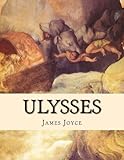
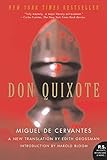
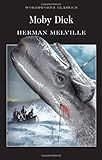
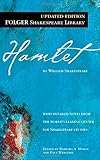
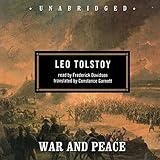
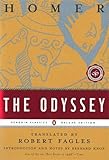

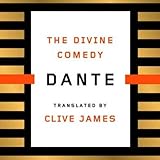


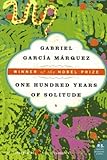

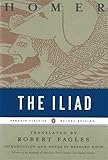
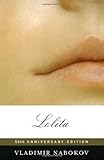

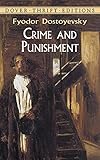
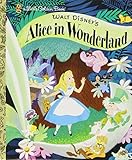

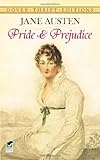

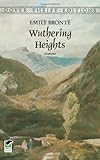

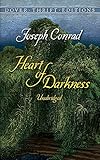


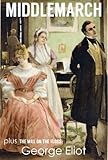

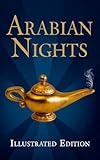
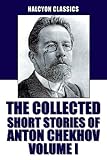


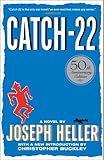

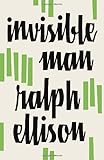



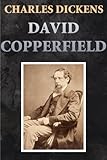






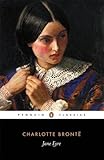
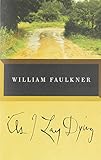

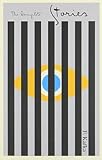

No comments:
Post a Comment